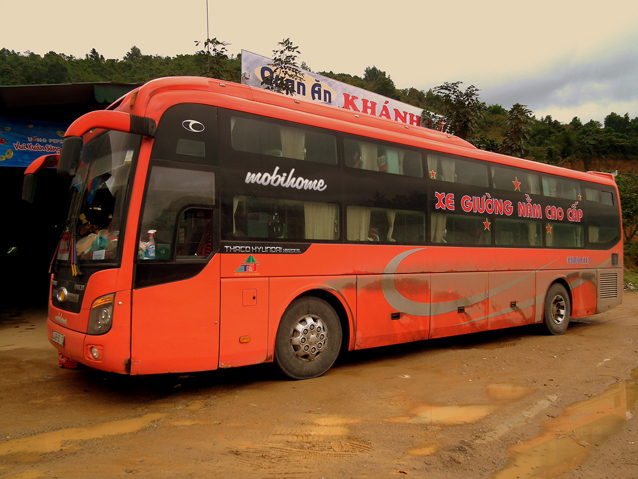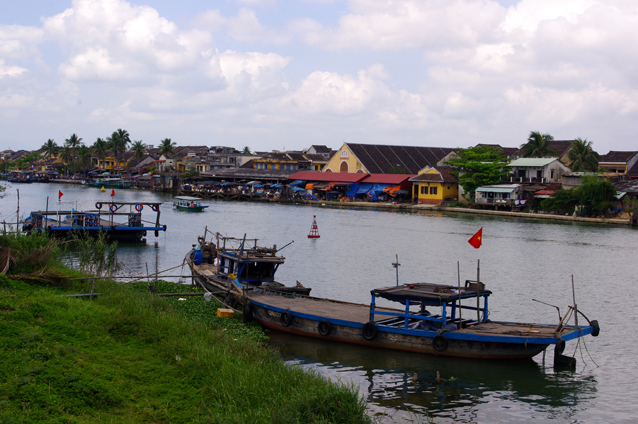



Sometimes it’s hard to sleep in Vietnam, and it’s equally difficult to identify what’s keeping you up. The hair-bending coffee? The clamor of motorbikes rattling through the streets? Or the beguiling smell of ginger drifting through a cracked window?
Vietnam’s sure to grab your senses – all five of them.

Hoi An, famous for its cuisine, sits on a river delta between two beaches. Taking a cooking class began with an early-morning trip to the market for ingredients.
A woman swung at her butchering block, cleaver raised high, pig heads at her feet. Cuts of fish lay strewn about the tables as their live brethren splashed in tanks below. Water filled the cracks in the concrete until they glimmered with fish scales. The morning-catch flopped and writhed, spraying me with putrid water from their glass prisons.
My pants stank for hours, but I didn’t mind.

Never before had I been in a box within a box. No, that’s not a riddle. When traveling on sleeper buses, I was relegated to my “bed,” a plastic pod made to fit a person no taller than 5-foot-5.
It’s not advantageous to be 6-foot-4 in Asia.
The discomfort of a sleeper bus, freezing one minute and moist as the surrounding jungle the next, brought foreign clientele together. On the road from from Hanoi to Hue, I conversed with a French pharmacist on differences between American and French healthcare until exhaustion quashed discomfort.
The bus stopped repeatedly throughout the night, picking up locals needing a lift into Hue. When I awoke, there was a sleeping woman sprawled on the floor beside me, her baby wailing in my ear.
At least one of us stretched out without a worry.

The Mekong Delta is a gritty, dusty part of southwest Vietnam, defined by a palette of grey sky, brown river and green florae. Bustling cities and quiet countryside blur together thanks to enchanting canals that resonate with chop-chop-chopping motorboats.
On a rented motorbike, I turned parallel to a canal, watching the boats cruise past. The buzzing of my motorbike joined the motorboat chorus, sending a dialogue of diesel through the air.

The farmers were knee-deep in mud. It was planting season and the patties had recently filled with water. They wore pants, long-sleeved shirts and rice hats. Half-planted rows of neon green leaves sprouted from the pools. Men and women alike, often with children in tow, bent to place each rice plant deep into the mud.
It was a beautiful freshwater ocean, divided into properties and dotted with diligent laborers. Like me, the cows stood by and watched.

My stomach wouldn’t settle. A potent combination of heat, jetlag and culture shock equaled appetite loss. This was deeply disappointing as the fabled street food remained out of reach.
I trudged uphill to the central plaza in Sapa, a town nestled in a mountainous valley, where I stumbled into a food stall. I pointed to a sign promoting their menu.
“Pho bo,” I said and sat.
The woman repeated my order, “Pho bo,” nodding.
A man brought out the bowl moments later. I expected to confront sinewy meat, soft noodles and oily broth – those expectations were shattered. The beef was tender and salty, the noodles firm. The broth was light, cubed ginger bobbing in the bowl. I smiled at the woman, sensing she’d known the American needed a stomach-stabilizer.
My equilibrium returned, as did my appetite, and I visited food stalls at every turn for the remainder of my visit.